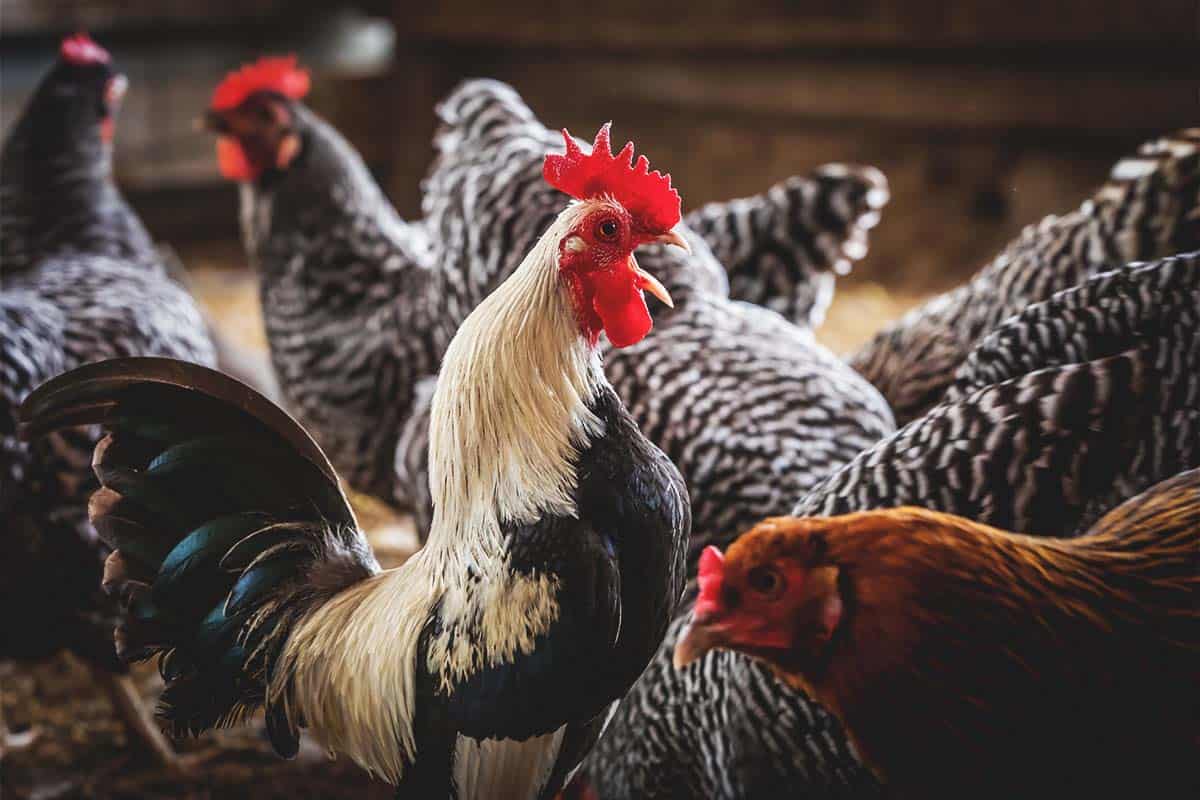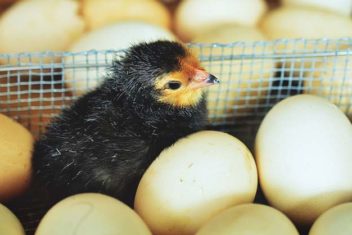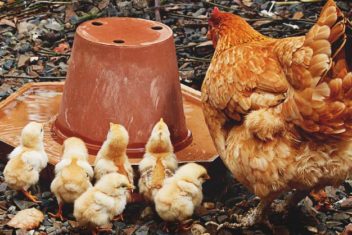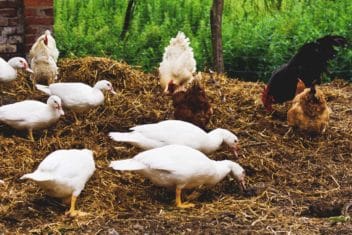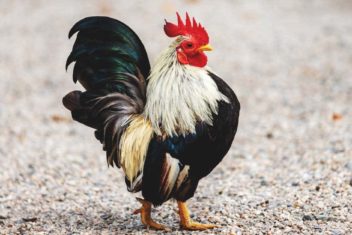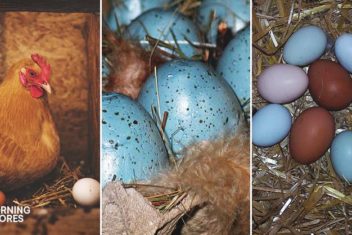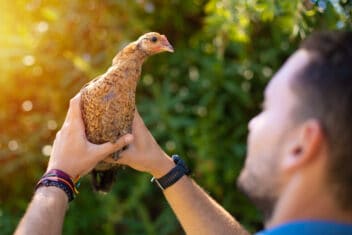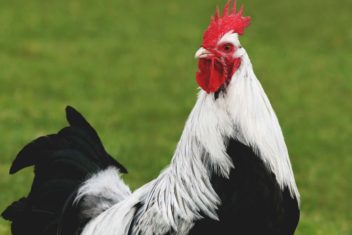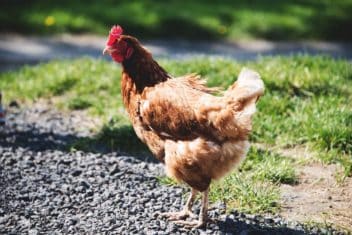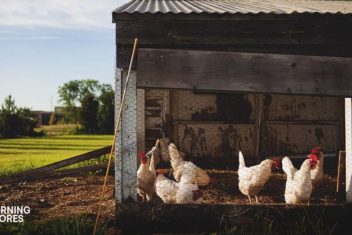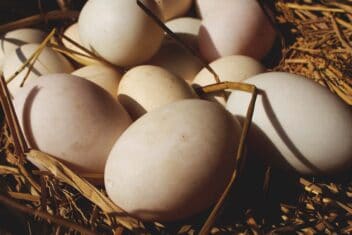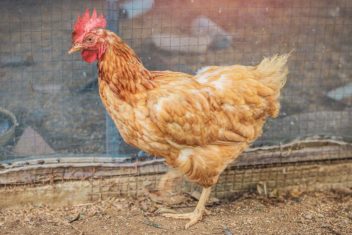We love our chickens, and many of us find their strange banter endearing, stress-relieving, and even relaxing.
Sure, there are times when the egg-song starts to drive us bananas, but when it comes down to it, chicken noises are all part of the fun of raising chickens.
And if you’ve owned chickens for any amount of time, you’ve probably picked up on some of the language chickens use to communicate with one another (and sometimes even you).
But if you’ve been wondering what something means, this article should help you out a bit so those chicken noises are no longer lost in translation. Ultimately, understanding normal chicken noises will make you aware when something is wrong, and take action.
For those less initiated with chicken noises, let’s start with the rooster. Yes, it crows, but there is so much more. Let’s discover how to translate all the coos and caaws in a rooster’s repertoire.
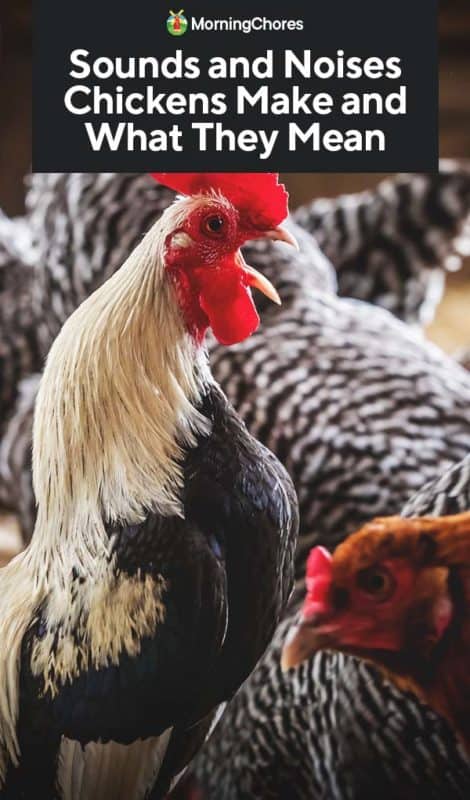
Rooster Repertoire of Noisy Crows and Caws
While roosters can, and will, make many noises similar to those of hens, they have their own set of vocabulary to decode.
1. The Rooster’s Crow
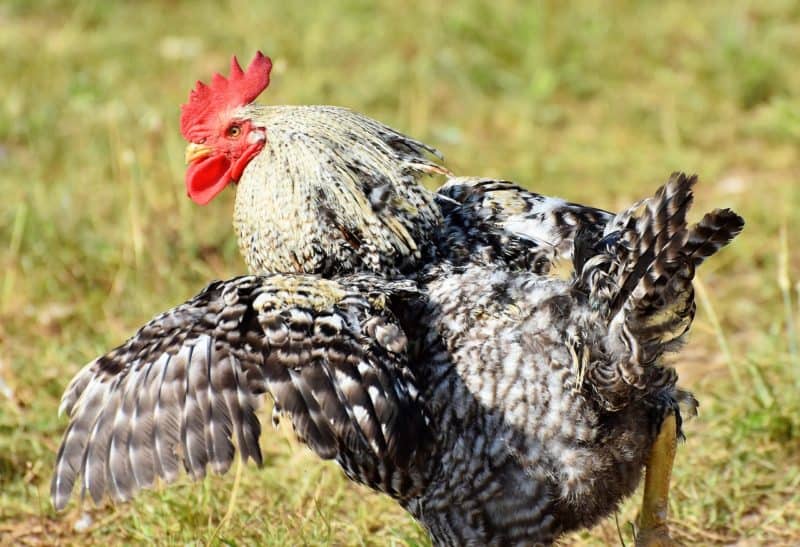
We all know what a crow should sound like…based on those cartoons, right? But the first time you hear a juvenile rooster crow (short video clip), you may be surprised. Not all crows are created equal. Some are short, some are low-toned, some are mono-toned, and some are just outright strange.
Crowing is used to communicate many things to the flock:
- The presence of a predator
- Incoming feed
- Warning to predators
- Warning to challenging roosters
- To show off to the hens
- To express a need that must be met
And the list goes on. When there’s something important to say, the rooster uses his strong voice to get the word out.
(We do have a post on how to stop a rooster from crowing if that is driving you around the bends.)
2. Rooster Tidbitting Noises
Tidbitting is when a rooster finds something yummy and wishes to share it with his girls, or young chicks. (He’s good with kids? How cute!)
He will cluck, cluck, cluck, shuffle, scratch and throw the interesting item in hopes of getting the girls to come and have a bite…and maybe mate with them while they are at it.
When a rooster is tidbitting, he rarely enjoys the treat. He allows the rest of the family to dig in first.
3. Growling Roosters
When a rooster growls, or caaaws lowly, it’s usually a warning or a sign of irritation. He may be telling you, other hens, or predators that they are about to cross the line. And you don’t want to go there.
4. Rooster’s Purr
Roosters are extremely good with their girls. He takes his job super seriously. He will even sweet-talk them by purring. Often he does this if he’s found a lovely spot for his ladies to nest.
A rooster will even demonstrate how his hens should enter the nesting box, and show them how to sit, as he purrs to them softly. He’s hoping to carry on his genes and he’s going to do everything he can to help the ladies do so successfully.
When very content, he will also purr, and I found a great example with this pet chicken purring.
Chicken Hen Hollers and Other Noises
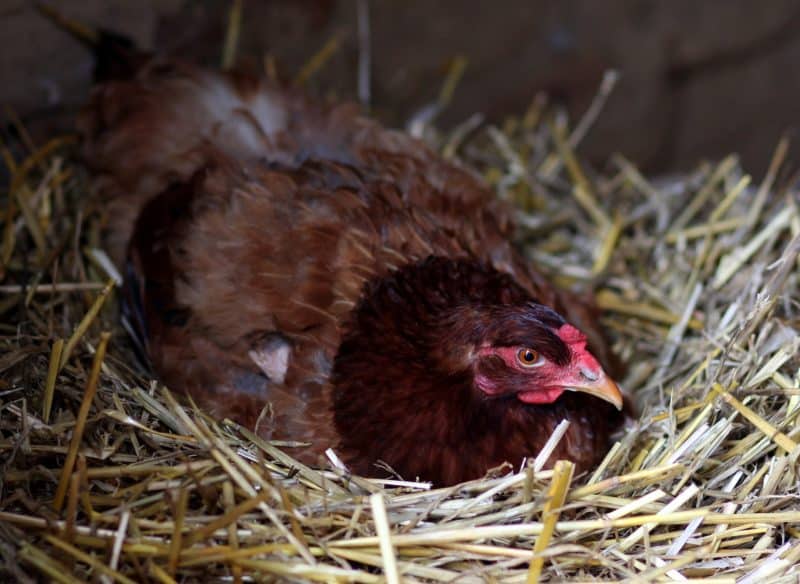
While roosters and hens can often make the same kind of sound, if you pay attention, and listen closely, they often are telling a completely different story.
5. Broody Chicken Clucks
Broody hens have one main purpose, and that is to hatch out healthy baby chicks. And part of that process is protecting their nests. When a hen is broody, she will use her body language and her voice to keep threats away from her chicks.
A broody hen clucks…a lot! If you’ve never seen a broody hen walking around, you’ll wonder what she’s looking for. She makes continuous clucking sounds and often looks a tad aloof.
6. The Chicken Egg-Song
This is the commotion you often hear when the whole coop is in an uproar. Usually, one hen starts cackling excitedly, and her clucks gradually increase. In most cases, you will feel like the nonsense will never stop. Especially because everyone else seems to chime in.
This is the sound you’ll hear when a hen has either laid an egg or is about to lay an egg. For some reason, the rest of the flock decides to weigh in on the egg-laying moment…perhaps they are celebrating.
7. The Sound of an Angry Chicken
Have you ever been scolded by a chicken? I have, and it’s an unmistakable sound. If your hens aren’t pleased with your presence, or the presence of an unwanted guest (like a cat) they will make a mid-range cawwww caaaaaw noise. Which means – move it. Here is a spunky example of a mother hen protecting her chicks.
When a chicken is on her nest…she will growl at anyone who comes too close. Be warned.
8. An Alarmed Chicken
This one is unmistakable. You’ve probably heard it in some of your favorite cartoons. It’s the startling squawk a chicken makes when you inadvertently sneak up on it and scare it. It usually alarms the rest of the flock and is often followed by scolding, and obsessive complaining.
9. Clucking Hens
Clucking is an ongoing, never-ending conversation between chickens. This is usually something they do on a daily basis while they go about their business. You may hear your hens clucking and lightly chattering as they forage for goodies in the yard. Just a bunch of clucking hens, right?
Chicken Noises are Well-worth Knowing
Chicken noises are wide and varied, and if you’re like me, you love to listen to them go about their day. Being able to understand them makes chicken watching all the more exciting. With these basics, you can delve a little deeper into the complex lives of your chickens.
Lastly, I’d like to share an old video of a chicken making distressing noises. By understanding the noises your chickens make, and when a sound is abnormal, it could help you take immediate action and perhaps save her life.
